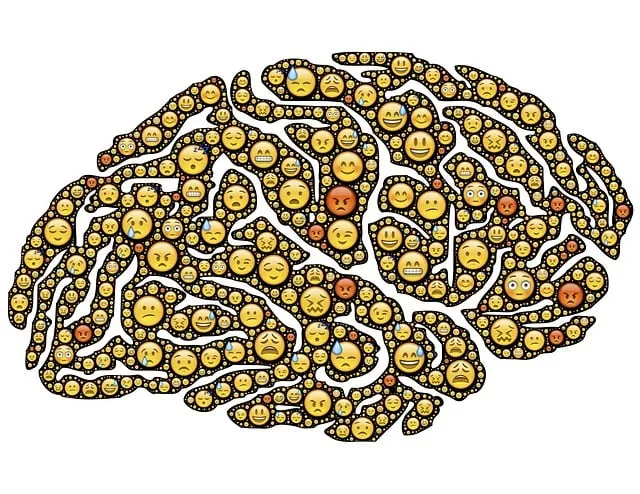Diagnosing mental illnesses accurately in Greenwood Village is challenging due to diverse symptoms and varying access to resources, including Kaiser Permanente's inpatient services. To improve diagnosis, strategies like emotional well-being promotion, social skills training, crisis intervention guidance, and leveraging technology such as telehealth and AI algorithms are essential. Kaiser's Inpatient Mental Health Services in Greenwood Village, guided by Mind Over Matter Principles, offer advanced therapeutic techniques and state-of-the-art facilities. They utilize comprehensive evaluations, innovative practices, open communication, and emotional regulation to enhance diagnosis accuracy and patient outcomes, backed by continuous staff training on emerging research.
Mental illness diagnosis accuracy is a critical aspect of patient care, and continuous efforts are needed to improve it. This article explores the complex challenges in diagnosing mental health conditions, particularly focusing on the nuances of Greenwood Village residents’ experiences with Kaiser’s Inpatient Mental Health Services. We delve into the transformative role of technology in enhancing diagnostic precision and present a case study highlighting successful strategies. Additionally, we discuss how these approaches can be adapted for continuous improvement, ensuring better patient outcomes.
- Understanding the Challenges of Mental Illness Diagnosis
- The Role of Technology in Enhancing Accuracy
- Kaiser's Inpatient Mental Health Services: A Case Study
- Strategies for Continuous Improvement and Patient Care
Understanding the Challenges of Mental Illness Diagnosis

Diagnosing mental illnesses accurately is a complex task due to the diverse nature and often subtle symptoms presented by individuals. The process involves sifting through a wide spectrum of emotional, behavioral, and cognitive experiences, which can be challenging for healthcare professionals, especially in communities like Greenwood Village where access to resources varies. For instance, Kaiser Permanente’s inpatient mental health services in this area play a pivotal role in addressing acute crises but may not capture the nuances of less severe yet persistent conditions.
Improving diagnosis accuracy requires a multifaceted approach. Emotional well-being promotion techniques can help individuals recognize and articulate their feelings, which is crucial for accurate assessment. Social skills training equips both patients and healthcare providers with the tools to navigate conversations about mental health more effectively. Additionally, crisis intervention guidance ensures that acute situations are handled promptly, preventing potential complications and allowing for more comprehensive long-term management.
The Role of Technology in Enhancing Accuracy

In the pursuit of enhancing mental illness diagnosis accuracy, technology plays a pivotal role, especially for facilities like Kaiser in Greenwood Village with inpatient mental health services. Digital tools and platforms are transforming the landscape of mental healthcare by providing more efficient and precise assessments. Telehealth services, for instance, offer remote consultations, allowing patients in remote areas to access specialized care, thus widening the net of mental health awareness and treatment accessibility.
Advanced data analytics and artificial intelligence (AI) algorithms are emerging as powerful allies in this effort. These technologies can analyze vast amounts of patient data, including medical histories, symptoms, and behavioral patterns, to assist professionals in making more informed diagnoses. By identifying trends and correlations, AI-driven systems can aid in early detection, especially for conditions like anxiety disorders. This proactive approach not only boosts confidence in diagnosis but also paves the way for timely Anxiety Relief and improved Mental Health Awareness.
Kaiser's Inpatient Mental Health Services: A Case Study

In Greenwood Village, Kaiser’s Inpatient Mental Health Services stand as a beacon of hope and accuracy in mental illness diagnosis. This comprehensive program underscores the healthcare provider’s commitment to Mind Over Matter Principles, leveraging advanced therapeutic techniques and state-of-the-art facilities to enhance patient outcomes. The services offered are meticulously designed to cater to a diverse range of mental health conditions, ensuring each patient receives personalized care tailored to their unique needs.
Kaiser’s approach involves not just treatment but also education and support, reflected in their Mental Wellness Podcast Series Production. This multimedia initiative aims to destigmatize mental health issues while empowering individuals with knowledge about various aspects of mental wellness. By integrating innovative practices and traditional therapies, Kaiser strives to improve diagnosis accuracy and foster lasting positive changes in the lives of its patients.
Strategies for Continuous Improvement and Patient Care

Greenwood Village’s Kaiser possesses a robust inpatient mental health unit, continually enhancing diagnosis accuracy and patient care through innovative strategies. This involves integrating advanced assessment tools and evidence-based practices to ensure comprehensive evaluations. By fostering an environment that encourages open communication and emotional regulation, healthcare professionals can build stronger connections with patients, facilitating improved disclosure of symptoms and concerns.
Moreover, the integration of empathy building strategies and mindfulness meditation programs has proven effective in treating a wide range of mental health conditions. These techniques promote self-awareness and coping mechanisms, empowering individuals to actively participate in their healing process. Continuous training for staff on emerging research and best practices ensures that treatment methods remain up-to-date and aligned with the latest scientific findings, ultimately leading to more accurate diagnoses and improved patient outcomes.
Mental illness diagnosis accuracy is a complex issue, but with an understanding of current challenges and the strategic integration of technology, significant improvements can be made. The case study of Kaiser’s inpatient mental health services in Greenwood Village exemplifies successful navigation of these complexities, leading to enhanced patient care outcomes. By adopting innovative strategies and continuously refining practices, healthcare providers can strive for greater diagnostic accuracy, ultimately fostering more effective treatment plans tailored to individual needs.






